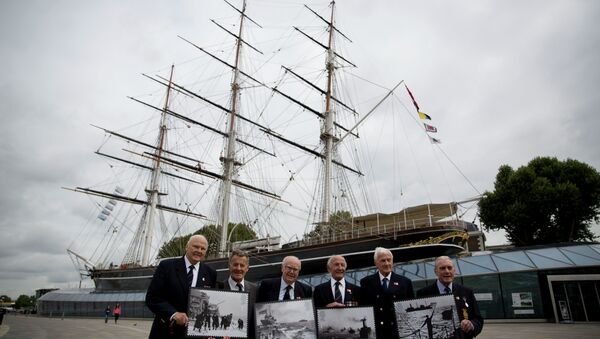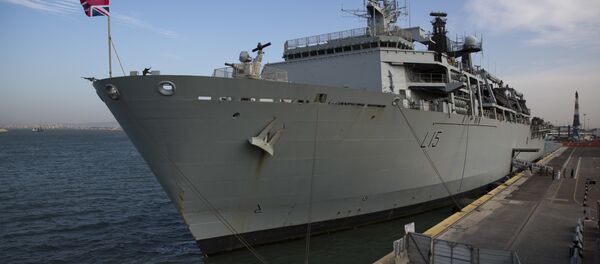The National Union of Rail, Maritime and Transport Workers (RMT) has criticized Theresa May government's for failing to prevent the slow death of the British merchant navy and has accused her of allowing it to wither away amid unfair competition from cheap labor.
UK seafarer numbers have fallen over 60 percent in the last 30 years to just over 23,000 in 2016.
New day. New adventure. Be a part of it.#careersatsea pic.twitter.com/hc6Nj8Mcmg
— Careers At Sea (@careersatsea) September 13, 2017
According to 2015 data, many of the ferries serving British ports were flying flags of convenience — Cyprus, Bahamas and Bermuda — and were crewed by seamen from as far away as Ukraine, Brazil and the Philippines, earning as little as US$3.47 per hour.
The former Labour MP for the port of Harwich in Essex, Ivan Henderson, told Sputnik what had gone wrong with the merchant navy since the war.
"As ships have got bigger and become more containerized and the technology has increased naturally the number of seamen has gone down. In future you might see the British merchant navy totally disappear. In Harwich when I went to school they used to do navigational training at school because there were so many jobs on ships going out of here. The sad fact is that we are now down to just one British-flagged ship, with 60 seafarers, where at one time there were 1,800," Mr. Henderson, who is 59, told Sputnik.
"It doesn't help when our government sits back and watches the demise of our merchant navy and encourages shipping companies to exploit cheap labor," said Mr. Henderson.
But why does it matter to the ordinary person in Britain?
The RMT says 95 percent of Britain's trade is transported by sea, compared with 48 percent in the rest of the European Union.
"All people care about nowadays is how cheap they can buy things off the shelf but we are an island on our own. Because of our history it's something that should be protected, encouraged and maintained. We need to train more British merchant seafarers," Mr. Henderson told Sputnik.
At the Labour Party conference in Brighton in September, Karl Turner, the MP for Hull East, was joined by officials from the RMT union, who highlighted the grave state of the British shipping industry.
Mr. Turner said part of the reason there had been a 73 percent vote in his constituency in favor of Brexit in last year's referendum was because people working in Hull's docks were fed up of ship deliberately hired Portuguese and Philippine seamen at much lower pay rates.
The RMT said the government had commissioned a number of reports since 2011, which had identified an impending seafarer skills shortage in the UK but ministers under David Cameron and then Theresa May had dragged their feet and done nothing about it.
Demand for ratings in the UK shipping industry is expected to increase to 110,000 by 2026 and global sea trade is forecast to double by 2030.
Security and Economic Threat
There are only 250 merchant navy ratings in training, the vast majority of whom are being trained by the Royal Fleet Auxiliary.
"Damaging the maritime skills base also has potentially disastrous consequences for national security," said the RMT in a report earlier this year.
The RMT says commercial shipping companies continue to profit from dragging their feet and will leave the UK with an economically unsustainable and strategically dangerous shortage of seafarers, post-Brexit.
Thank you to all who joined us at our #CentenaryDinner celebrating work done over 100 years to support past, present & future #seafarers! pic.twitter.com/0PIK8diugo
— Seafarers UK (@Seafarers_UK) October 5, 2017
The merchant navy and seafaring has been a long tradition in the country, not just in its ports, and played a crucial role in building up the strength of the British Empire.
During the Second World War 30,248 of merchant seamen lost their lives on convoys transporting goods from the United States, Canada, Australia, Africa and elsewhere to Britain and the Soviet Union, fighting against Nazi Germany.


